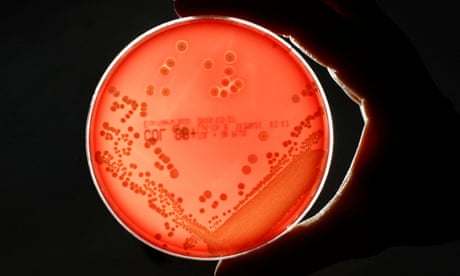- by foxnews
- 02 Feb 2025
‘Looming global health crisis’: urgent action needed to prevent spread of drug-resistant superbugs, CSIRO says
‘Looming global health crisis’: urgent action needed to prevent spread of drug-resistant superbugs, CSIRO says
- by theguardian
- 28 Feb 2023
- in news

Better coordination is urgently needed across Australia to mitigate the threat of superbugs as a "global health crisis" looms, according to a new report co-produced by the national science agency.
Antimicrobial resistance occurs when microorganisms develop mechanisms to protect themselves against drugs that destroy them, such as bacteria developing antibiotic resistance, or fungi becoming resistant to antifungal medicines.
The report, published by the CSIRO and the Australian Academy of Technological Sciences and Engineering, describes antimicrobial resistance as a "looming global health crisis" with the ability to render some of the most critical drugs to modern medicine ineffective.
"There is a lack of coordination in the efforts against the rise of antimicrobial resistance, significant data siloes across states and sectors, and a need to increase community understanding about the issues and impacts of antimicrobial resistance," the report found.
Without urgent action, the report warns of a "post-antibiotic world" in 2050, marked by declines in lifespan, quality of life, and livestock production, with "meat being rare and risky to eat".
The United Nations has previously predicted that without urgent intervention, drug-resistant microbes would result in 10 million deaths each year globally by 2050.
"The more we use antibiotics, the faster we lose them," said Dr Branwen Morgan, lead of the Minimising Antimicrobial Resistance Mission at the CSIRO.
"One of the recommendations of the report is to understand what data needs to be captured in a surveillance system and how that could be standardised, so we get a better picture of what is being given in the animal sector and also in [human healthcare]," she said, adding that Australia had clear guidelines on the strict use of antimicrobials in livestock industries.
On potential solutions, Morgan said: "It's not as simple as making new drugs to replace those that are failing because discovering new antibiotics is a slow and expensive process. They have a high failure rate - most do not progress to the human clinical trial stage."
The report focused on emerging technologies that could prevent the spread of antimicrobial resistance.
Sue MacLeman, a fellow of the Australian Academy of Technological Sciences and Engineering, described at the press briefing approaches such as "surface sprays that change colour when they come into contact with dangerous pathogens, neutralising technologies built into our sewerage systems which can detect and disarm harmful microbes before they are flushed out into our waterways, toothbrushes that provide data on our oral health and which self-sterilise after use".
A previous report, published by the CSIRO and the Australian Antimicrobial Resistance Network in November, estimated that superbugs now result in 1,000 deaths in Australia each year.
- by foxnews
- descember 09, 2016
Disney reveals fate of closed Star Wars hotel
The building that was formerly home to the Star Wars: Galactic Starcruiser at Walt Disney World in Orlando, Florida will be repurposed, the company confirmed to local media earlier this week.
read more


